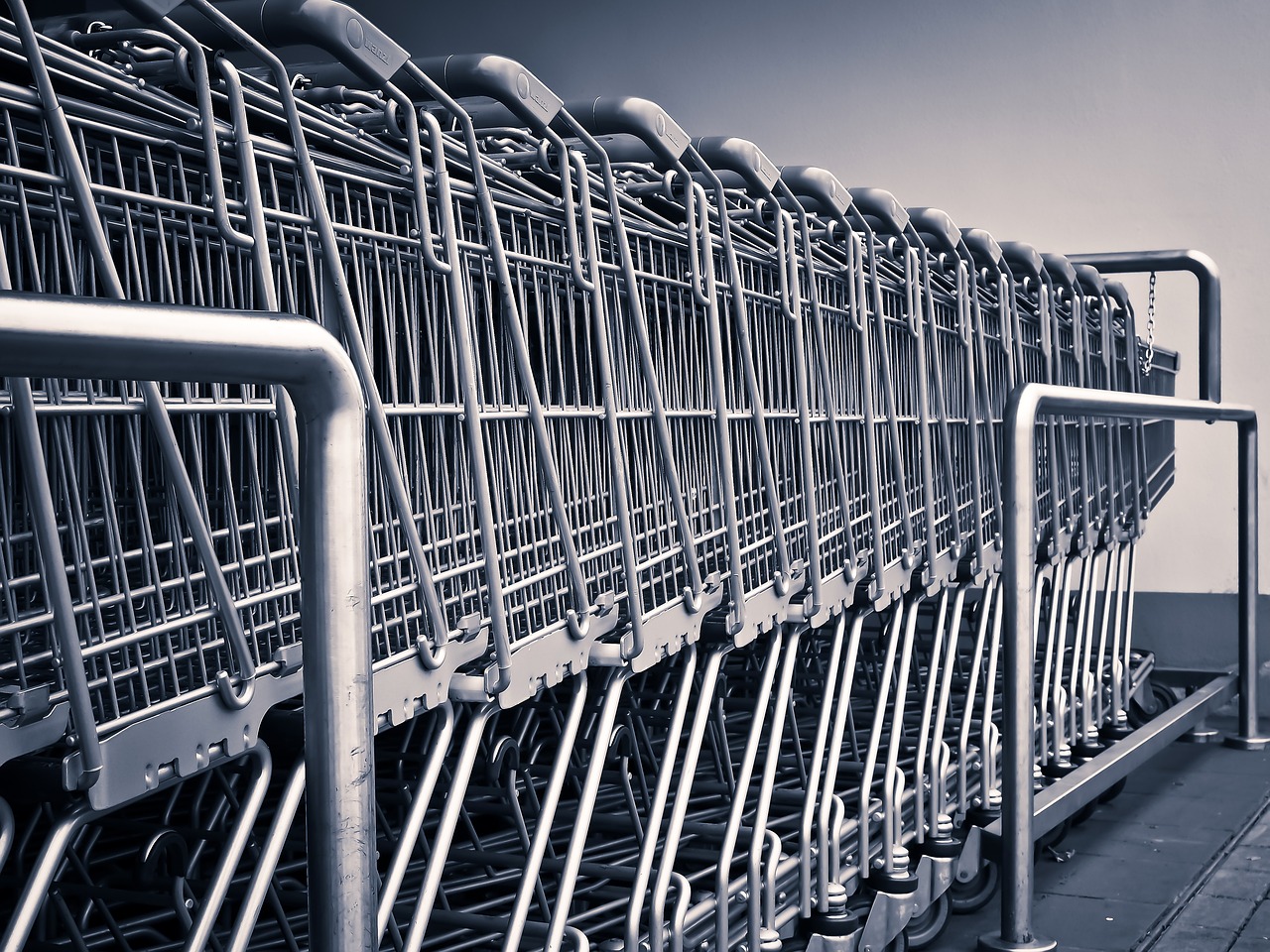
Mastering Your Grocery Budget in Times of Inflation
By: Marina Lima (marinalima@mabviral.com)
Introduction
Grocery shopping is one of the essentials of everyday life, yet it can often feel like you’re throwing money away, especially in today’s economy characterized by inflation and rising prices. With credit card debt accumulating due to high-interest rates, many families find themselves struggling to maintain their budgets. Learning how to effectively save on grocery shopping can make a significant difference in your overall financial health. This article will explore how to save on grocery shopping with foolproof tips, helping you retain more cash and make smarter spending decisions.
The Journey of Lisa: A Lesson in Smart Grocery Shopping
Meet Lisa, a single mother of two who juggles work and family life while trying to manage her finances. With inflation causing grocery prices to surge, Lisa found herself heavily reliant on her credit card to cover unexpected expenses. Each month, she felt the burden of high-interest charges creeping up as she struggled to pay off her balance, especially after filling her shopping cart.
At first, Lisa didn’t think much about her grocery shopping habits. She would often head to the store without a list, buying whatever caught her eye or whatever she felt like cooking that week. However, after a particularly shocking month where her grocery bill soared, she realized that she needed to change her shopping habits. Lisa decided to learn how to save on grocery shopping to take control of her finances and break the cycle of debt.
Armed with determination, Lisa began researching tips and strategies to make her grocery shopping more budget-friendly. She discovered that with careful planning and smart choices, she could significantly reduce her grocery expenses. Lisa’s journey toward mastering her grocery budget not only helped her save money but also empowered her to regain control over her financial future.
Foolproof Tips for Saving on Grocery Shopping
- Plan Your Meals:
- One of the most effective ways to save money is by planning your meals for the week. Lisa started by mapping out her family’s meals based on sales and seasonal produce. This planning reduced spontaneous purchases and helped her create a focused grocery list, ensuring she only bought needed ingredients.
- Create a Grocery List:
- Going to the store without a grocery list can lead to impulse buys and unnecessary expenses. Once Lisa started making her list based on her meal plan, she noticed that she spent significantly less. A well-thought-out list keeps you on track and eliminates distractions.
- Use Coupons and Apps:
- Couponing can yield substantial savings. Lisa began clipping coupons and using grocery store apps to take advantage of digital discounts. By stacking coupons with store sales, she maximized her savings, reducing her overall grocery bill.
- Shop with a Budget:
- Setting a strict budget for grocery shopping can help you stay within your means. Lisa decided on a specific amount to spend each week and did her best to stick to it. This approach forced her to prioritize items and keep the focus on buying essential goods rather than snacks or luxury items.
- Buy in Bulk:
- For non-perishable items or products your family frequently uses, purchasing in bulk can save you money in the long run. Lisa learned to buy staple items like pasta, rice, and canned goods in larger quantities, allowing her to take advantage of lower unit prices.
- Avoid Impulse Purchases:
- While shopping, it’s easy to get sidetracked by promotional displays or items that aren’t on your list. Lisa made a conscious effort to stick to her list and avoid browsing unnecessary aisles. By resisting impulsive decisions, she cut down on high credit card expenses.
- Consider Store Brands:
- Store brands or generic products can often be just as good as name brands but at a fraction of the cost. Lisa began substituting brand-name items with store equivalents without compromising quality, leading to significant savings.
- Buy Seasonal Produce:
- Fresh fruits and vegetables often come at a premium price during off-seasons. Lisa started to buy seasonal produce, which not only tasted better but saved her money. This approach also supported local farmers and reduced the carbon footprint associated with shipping produce.
- Utilize Leftovers:
- Meal prepping and using leftovers creatively can stretch your grocery budget. Lisa began repurposing leftover meals into new dishes, reducing food waste and ensuring that every dollar spent on groceries was utilized efficiently.
- Be Mindful of Serving Sizes:
- Lisa discovered the importance of monitoring serving sizes for various foods. Understanding portion sizes lessens the chances of over-purchasing and, in turn, reduces waste. It’s essential to buy what you can realistically consume to avoid throwing money away.
- Common Doubts About Grocery Shopping
- Is meal planning really worth the effort?
- Yes! Meal planning saves time in the long run and helps you make informed purchases. It reduces impulse buys and ensures you focus on ingredients you’ll actually use, preventing waste and unnecessary spending.
- What if I don’t have time to prepare meals?
- Even simple meal planning can save you money. Start with easy recipes or make larger portions to have leftovers for lunch/dinner. Additionally, meal prepping can be done for a week during the weekend to save time on busy weekdays.
- Are generic brands genuinely lower quality?
- Generally, store brands and generic products meet the same quality standards as name brands. Many consumers find that the cost savings outweigh concerns about quality, especially with staple items.
- Frequently Asked Questions (FAQs)
- How can I find good coupons?
Coupons can be found in local newspapers, online coupon websites, grocery apps, and store promotions. Many supermarkets have loyalty programs that provide exclusive discounts for members. - Should I use cash or a credit card for grocery shopping?
While using cash can help you stick to your budget, a credit card can come with rewards. However, if you struggle with high-interest debt, it’s advisable to use cash or a debit card to avoid overspending. - How can I adjust my grocery shopping as my family grows?
Adjust your meal plans and grocery list accordingly. Keep track of consumption habits to ensure it reflects the growing needs of your family without overshooting your budget. - Summary
- Saving money on grocery shopping is entirely possible through strategic planning and mindful spending. Lisa’s story illustrates how adopting practical habits—such as meal planning, creating a concrete shopping list, and focusing on seasonal and bulk purchases—can enhance your household economy, especially in a climate of high inflation and significant reliance on credit cards.
- By being intentional about your grocery purchases and following the foolproof tips outlined in this article, you can better navigate rising food prices, reduce unnecessary expenses, and bolster your financial health. Remember, each small change in your shopping habits can lead to significant savings over time, helping you avoid the pitfalls of overspending and the burden of high-interest credit card debt.
- If you liked our article, feel free to leave a comment below!


